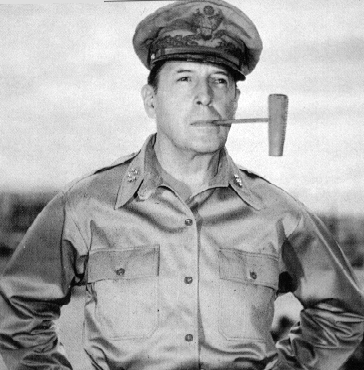By Arthur Kerle--
Today I will be discussing the role
of politics in war. Or as I aim to show,
the role of war in politics. The notion
of war as a subordinate to politics is one that, since Vietnam, our nation has
been irked by. Civilians, when playing
armchair quarterback about America’s military actions, often lament about the
level of oversight provided by ignorant politicians. If they
would just leave the business of war to the warrior! Must they meddle in everything?
This was my opinion until
relatively recently. With the battles
raging in Iraq and Afghanistan and family friends deployed overseas, I heard
stories about how politicians were hamstringing the army and making it hard for
them to do their job: kill the
enemy. These stories backed up opinions
I had already formed about politicians involving themselves in war. The struggles of Washington regarding his
political generals during the Revolution and the disastrous effects of the same
during the Civil War were influencing factors in my view. The term “political general” brought negative
connotations rushing to the forefront of my mind whenever my eyes or ears
encountered it. My view of political
oversight into war remained as thus until listening to a lecture on the topic: Masters
of War: History’s Greatest Strategic
Thinkers. This lecture can be found
at www.audble.com and is put on by The Great Courses series.
First, a disclaimer. As this blog aims to help Christians digest
the complexity of today’s world and make well-educated decisions, in writing
this, I am not condoning war as good. I
do, however, believe that war is not completely incompatible with Christianity
– that is not to say by any means that I believe violence should be
sought. It is, nonetheless, important to
have a basic understanding of politics because of the amount of influence it
has over the happenings of both our country and the world. War (or strategy) falls under the dominion of
politics and the basic principles that I will discuss are applicable in many
fields other than that of the battlefield.
Now that we have that out of the
way, it is necessary to examine the purpose, thought process and goals of both
a political leader and a general. To
illustrate, imagine the following situation:
Two football teams are entering the homestretch of a game. The score is thirty-four to twenty-eight with
the trailing team in possession and driving.
They have a first and ten with just over a minute and half on the clock
at their opponents forty-five. The
quarterback wants to score and score quickly!
He wants the lead! To do so he
begins to use the no huddle offense. His
head coach, however, stops him. The
coach has considered the implications of a quick score: giving the ball back to a very dangerous
offense with plenty of time move the football.
If that happens, they lose. They
need to take more time off the clock before they score.
That difference in thinking in the
analogy perfectly represents the differences in thought between a general and a
politician. The quarterback,
representing the general, wants to do his job, he wants to score points! The politician, or the coach in the analogy,
is thinking in broader terms. There are
many other issues to consider than just scoring points or wining battles. After all, history is littered with examples
of generals who have won battle after battle but lost the war.
 Before wrapping up, a quick example
of just such a case in our nation’s
history where a general won a battle but lost the war. In Korean War, General Douglass MacArthur,
hero of the Pacific in World War II, defeated the Soviet backed North and pushed
them out of the South. Had he stopped
there, it would have been both a military and
political victory. But he did not
stop there. MacArthur drove his forces
into the North, drawing too near to the Chinese border and prompting them to
pour in their own troops, resulting in an ugly stalemate that settled
little. MacArthur exceeded the impetus
of the attack in crossing the 38th Parallel and scared the Chinese
into action (fearing an invasion of China by MacArthur). He had won, accomplished the main political
objectives of the United States and their allies but because of a lack of political oversight, that victory morphed
into a stalemate at the very best.
Before wrapping up, a quick example
of just such a case in our nation’s
history where a general won a battle but lost the war. In Korean War, General Douglass MacArthur,
hero of the Pacific in World War II, defeated the Soviet backed North and pushed
them out of the South. Had he stopped
there, it would have been both a military and
political victory. But he did not
stop there. MacArthur drove his forces
into the North, drawing too near to the Chinese border and prompting them to
pour in their own troops, resulting in an ugly stalemate that settled
little. MacArthur exceeded the impetus
of the attack in crossing the 38th Parallel and scared the Chinese
into action (fearing an invasion of China by MacArthur). He had won, accomplished the main political
objectives of the United States and their allies but because of a lack of political oversight, that victory morphed
into a stalemate at the very best.
Politics dominate the world,
everything else is reliant on politics to a certain degree. Warfare and its conduct is no different. Not only should war be overseen by
politicians but very closely monitored.
Without close oversight, war can quickly get out of hand and exceed the
bounds of the political objectives that the military set out to
accomplish. Sound strategy should be
conceived with political goals in mind and carried out by the generals under
the watchful eye of the politicians.
- Wilson, Andrew R. Masters of War: History’s Greatest Strategic Thinkers. The Great Courses. Audio.

No comments:
Post a Comment